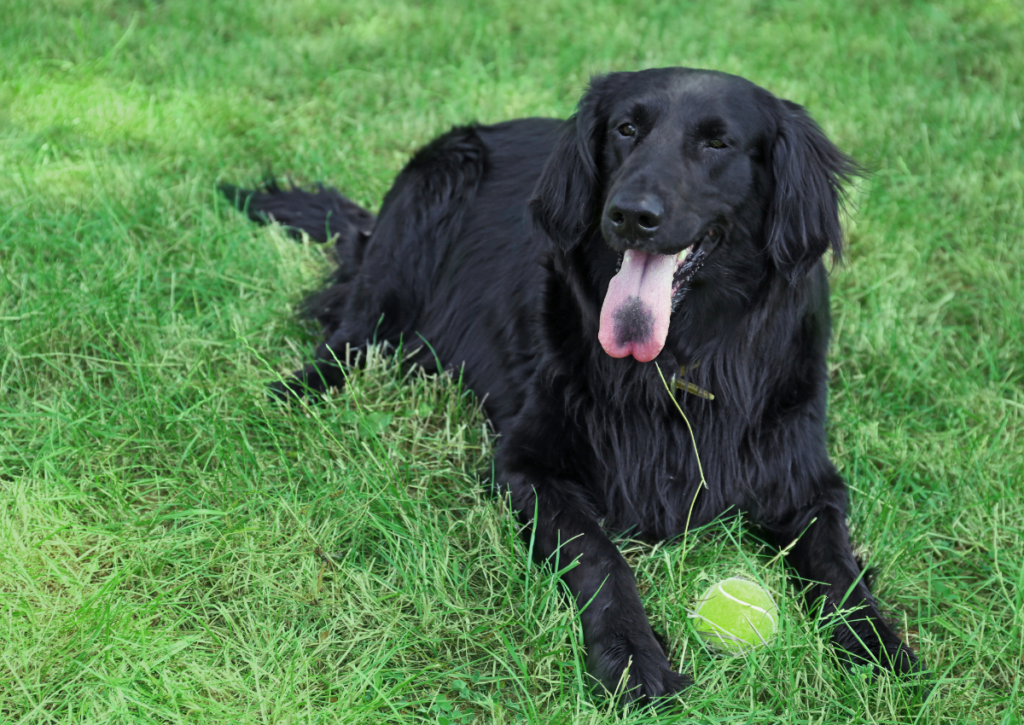For Pups With Short Attention Spans…
The black spot on your dog’s tongue is more than likely hyper-pigmentation, like a birthmark or freckle. Black spots are generally common, but some breeds, such as the Chow-Chow, are more likely to have darker tongues than others.
Pups come in all shapes, sizes, and furs. Some dogs have one blue and one brown eye. Some dogs have two noses. And there are some dogs out there sporting purple, dark blue, or almost black tongues! Personally, we think it makes them all the more aww-dorable.
What Are the Black Spots?
Actually, it just means that their tongue has extra pigmentation. Like humans, dogs can have extra pigmentation that results in freckles or birthmarks, and this also extends to their tongues! Some will develop spots, and some will have tongues that appear completely black.
Are Certain Breeds Predisposed To Having Dark Or Spotted Tongues?
It’s true! Chow Chows are perhaps the most famous for their dark tongues, but there are actually more than 35 breeds prone to it, including Akitas, bull mastiffs, Newfoundlands, Labradors, and huskies. Check out a full list of breeds here.


Needless to say, if your dog has a spotted tongue they may be one of those breeds, though it’s not a definite indicator. Scientists are not sure why these breeds are predisposed to spots or dark tongues in comparison to other dog breeds, but it sure does give them some extra pizzaz!


Can Spots On A Dog’s Tongue Be A Sign Of Illness?
Most likely, flat spots are not a sign of illness. However, if the spots are raised, or look concerning in any way, you should make an appointment with your vet and get your pup examined. Canine oral cancers and melanomas1 can appear as raised spots or fleshy tumors.


In order to spot unusual changes in your dog’s mouth, you have to know what it looks like normally. The best way to do this is to practice dental hygiene with your pup (brush teeth or give them dental chews, inspect your dog’s gums, teeth, and tongue), and schedule routine appointments with your vet.
Sources
1Vail, David M., and Stephen J. Withrow. “Chapter 21.” Withrow & Macewen’s Small Animal Clinical Oncology (Fourth Edition), Fourth ed., W.B. Saunders, 2007, pp. 455–510, https://www.sciencedirect.com/topics/pharmacology-toxicology-and-pharmaceutical-science/tongue-tumor. Accessed 21 Jan. 2022.
Featured image via @zilkerbark and @goodnotgreatpyrs








